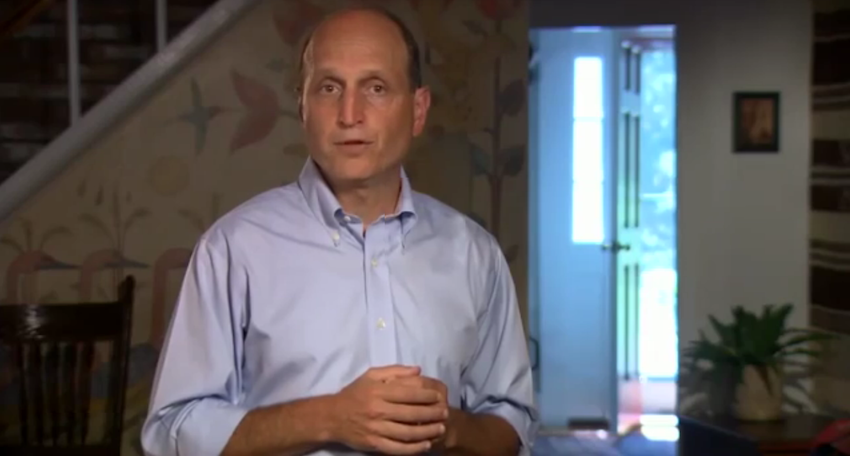Dan Wolf Will Continue His Run for Governor Despite Being Found Ineligible
State Senator and Democratic candidate for governor Dan Wolf said Wednesday that he would retain his office and continue his campaign despite a ruling from the State Ethics Commission that said his ownership stake in Cape Air actually prevents him from serving in either position. (Kind of a “your money or your life” dilemma if we’ve ever heard one.)
Wolf owns 23 percent of Cape Air, the small airline he founded in 1989, which has contracts with MassPort that allow the airline to fly into and out of Logan Airport. The commission ruled that the relationship “raises substantial issues” under the law that bans state officials from having a financial interest in state contracts. (MassPort’s board is controlled by the governor.)
“Under the law, unless Cape Air’s contracts with Massport are terminated, the legislator must choose between his public office and retaining his financial interest in Cape Air,” the Commission said in a ruling delivered to Wolf on Friday. Despite brief rumors that he would drop out of the governor’s race, Wolf responded with a lengthy statement posted to his Facebook page Wednesday to say he would fight the ruling. Terminating a contract with MassPort would effectively ruin a company like Cape Air (for obvious reasons) he noted. Furthermore:
This opinion would prevent any successful businessperson who may have even tangential business interaction with the state from entering public life. I disagree with this opinion and will be working to rectify what I believe to be an unfortunate conclusion based on a flawed process.
Wolf’s statement also makes clear why he was pretty surprised to find out he’s ineligible for state office. After all, he’s been a state senator since 2010, and no one thought to mention that he’d been breaking ethics rules this whole time. He reached out to them for a ruling out of “an abundance of caution” only to receive the unhappy news:
An initial conversation with State Ethics Commission staff led me to believe that no such conflict would exist, reiterating an informal opinion regarding the State Senate before I was first elected in 2010. In addition, my filings to the Ethics Commission in the years since have clearly stated my holdings and relationship to Cape Air, which never have been flagged as an area of concern.
He also argued that his company’s contracts with MassPort aren’t the kind that the ethics laws are intended to combat. The contracts are dictated by federal regulations and renewed automatically without any “affirmative action” from either party. Essentially, there’s very little room for him to use his office to get a better deal, he argues.
The ethics committee says that even so, there’s no ambiguity in the law, and they point to other examples where they’ve applied it strictly:
We most recently considered the application of Section 7 to a legislator’s financial interest in a state contract in 2011 in EC-COI-11-1. That opinion involved a state legislator who was the 100% owner of a small family business that had a contract with a state agency under which it provided certain services. The company had supplied such services to the agency for at least 30 years. The contract was a standard form contract and the terms were not individually negotiable. The contract was due to terminate in several months. We stated that, even though the evils aimed at by Section 7 – use of position by state employees to obtain contractual benefits, and public perception that state employees have an “inside track” to such opportunities – were not present, the legislator would have to divest himself of that contractual interest.
Wolf is considered a relative long-shot for the Democratic nomination, especially if a bigger name like Treasurer Steve Grossman or Attorney General Martha Coakley launches a run. Even so, he’s hoping to use his small business background (and maybe his money?) as a selling point.



